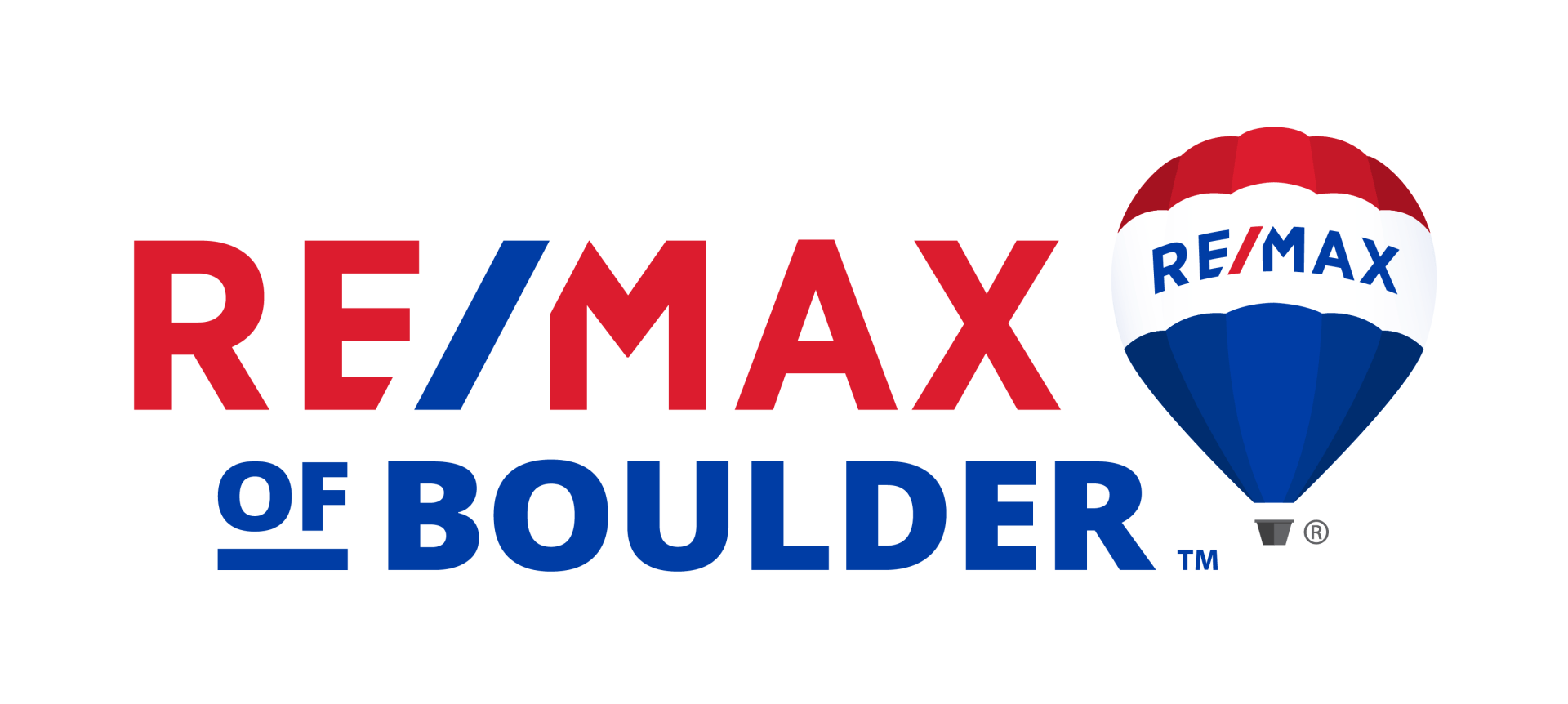Blog Layout
Veterans Day! Celebrating VA Homebuying Benefits
Duane Duggan
By Duane Duggan, Realtor, RE/MAX of Boulder

We just celebrated Veterans Day this past Monday and I want to start off by thanking all the Veterans who have served or are currently serving our country. Veterans often do not get thanked enough for their tremendous courage and sacrifice. At least one of the ways they do receive thanks is through the opportunity to buy a home using their VA eligibility. I spoke with Jessica Shanahan, a mortgage loan officer with local mortgage lender Premier Lending, for a summary of the home loan benefits available to Veterans.
Who is eligible to get a VA loan?
A Veteran must apply for a Certificate of Eligibility. Veterans can be eligible if they were not dishonorably discharged and meet any one of the following criteria:
- Served 90 days during war time
- Served 181 days in peace time
- Served 6 years in National Guard or Reserves
- If you are a spouse of a service member who has died in the line of duty.
- If you are the spouse of a service member who has died as a result of a service-related disability
How does the VA provide these loans?
The U.S. Department of Veterans Affairs (VA) does not make loans. It guarantees loans made by lenders. The VA determines your eligibility and if you are qualified, the VA will issue you a Certificate of Eligibility to be used in applying for a VA loan. VA-guaranteed loans are obtained by submitting an application to private lending institutions such as Premier Lending.
What is the primary benefit of a VA home loan?
No- or low- down payment is typically touted as the primary benefit of getting a VA loan. This pertains as long as the sales price of the home is not higher than the home’s appraised value. Low down payments are available through other programs, such as 3.5% down with FHA, but VA allows for no down payment.
Are VA qualifying standards more lenient?
The VA uses a measure called “residual income” to qualify a Veteran. They check to see if you have enough discretionary income for food, clothing, gas, etc. to live on after making your mortgage payment. There is a minimum residual income requirement.
How do I apply for a VA loan?
Pretty much the same as any other loan with a couple of additions. Those additions are the DD-214 (statement of service) for discharged service members or a statement of service letter signed by the commanding officer for active military members.
Is there mortgage insurance like insurance on low down payment conventional loans?
VA home loans do not require private mortgage insurance (PMI). However, the VA has a one-time funding fee of 2.15% of the loan amount for no down payment loans. The funding fee can be added into the loan. If the down payment is 5%, the funding fee is 1.75%. With 10% down it is reduced to 1.5%.
Besides the VA funding fee, what other closing costs are there?
Again, the VA funding fee can be financed into the loan. Lenders can charge a loan origination fee of 1% that covers some of the closing costs based on a list provided by the VA. The Veteran is allowed to pay for some closing costs, such as, appraisal (CRV), credit report, title insurance, recording fees, and surveys. In some market conditions, a Veteran might be able to ask the seller to pay for closing costs or concessions up to 4%.
Does the VA order an appraisal on the home?
The VA requires a mandatory home appraisal and from that issues what the VA calls the Certificate of Reasonable Value (CRV). This amount must be equal or greater than the sale price and it sets the ceiling on the size of the loan on the home. The CRV is good for six months after it is issued. The CRV does not guarantee the condition of the home.
Is there a loan limit?
The loan limit in Boulder County is $626,750.
Can a Veteran have more than one VA loan?
The dollar amount of a VA loan is based on entitlement, that is, the amount of money the VA will guarantee repayment to lenders in the event that a borrower defaults. It is possible to have two VA loans at once if all the entitlement is not used up on the first one and if the Veteran can qualify for both loans. A Veteran can also buy a second primary residence as long as there is enough entitlement and the Veteran can qualify.
How are interest rates determined on a VA loan?
The VA does not set interest rates but because the loans are backed by the federal government, interest rates are usually lower. The rate is market driven and can vary between lenders.
Are VA loans assumable when a Veteran goes to sell?
VA loans are qualifying assumable, meaning they can be passed to new owners. In other words, they are assumable if the new buyer qualifies for the payment. The assuming party does not need to be a Veteran. However, a Veteran seller will not have entitlement restored unless the loan is assumed by a qualified Veteran.
Can a Veteran buy a 4 unit with a VA loan?
Yes, a Veteran can buy a 2, 3, or a 4-unit property as long as the Veteran lives in one of the units. A Veteran can even combine their loan with other entitled Veterans to increase their purchasing power in they all occupy one of the units as their primary residence.
Can a Veteran buy an investment property using a VA loan?
The Veteran needs to owner occupy the property, so to buy a single-family home and rent it, the answer is no. However, as mentioned above, a Veteran can buy up to a 4-unit apartment building, live in 1-unit and rent the others.
Where do I get a VA Loan?
Remember, the VA itself does not make the loans. The loans go through private lenders approved by the VA, such as Premier Lending.
_______________________________
About Duane Duggan:
Duane Duggan has been a Realtor for RE/MAX of Boulder in Colorado since 1982 and has facilitated over 2,500 transactions over his career, the vast majority from repeat and referred clients. He has been awarded two of the highest honors bestowed by RE/MAX International: The Lifetime Achievement Award and the Circle of Legends Award. Living the life of a Realtor and being immersed in real estate led to the inception of his book, Realtor for Life.
For questions,
email Duane
Visit boulderco.com.

By Tom Kalinski
•
13 Feb, 2024
Explore the allure of Boulder, Colorado, as a prime destination for real estate investment. Learn about the city's strong economic fundamentals, high demand for housing, and resilient market dynamics. Discover opportunities for capital appreciation, rental income, and strategic selling in this vibrant and competitive real estate market.

By By Tom Kalinski, Broker/Owner, RE/MAX of Boulder
•
07 Dec, 2022
Mortgage rates more than doubled in 2022, but good news appeared in November, a positive sign for those buying or refinancing a home.
Indeed, the 30-year fixed-rate mortgage fell for the second week in a row in November, hitting 6.67% — down almost half a percentage point from its recent high of 7.16%, the Mortgage Bankers Association’s (MBA) reported.

By Lynn Ryan
•
13 Sep, 2021
Click here to listen to Lynn Ryan on "Best Places to Live" podcast. RE/MAX of Boulders Top Producing Agent Lynn Ryan is featured on Danae Aballi’s podcast “Best Places To Live” to discuss the Boulder, CO, real estate market. Each episode host Danae Aballi interviews top real estate agents in highly ranked real estate markets to bring ideas and inspiration to real estate markets that should be on everyone’s radar. Listen to Lynn discuss Boulder, CO, from a real estate perspective and talk about the median home prices, property taxes, city growth, up-and-coming neighborhoods, and so much more.

By By Tom Kalinski, Broker/Owner, RE/MAX of Boulder
•
23 Aug, 2021
Buying a home is a big decision. Before you dive in, it’s critical to think through the process of buying a house. If you follow a few simple guidelines, you can actually enjoy learning about your goals and financial outlook. The initial steps in how to buy a house are: Determine if you’re ready to buy a home Assess your financial situation Find the needed credit score to buy a house Discover what credit score is needed to buy a house Determine how much down payment you need Get a mortgage pre-approval Find the right real estate agent Let’s get your home-buying journey started with some questions to explore. Are you ready to buy a house? What kind of house best suits you? When you buy a home, the financial commitment is enormous. It is the biggest single purchase most people make in their lifetime. It comes with both risk and reward: the risk is that your investment doesn’t pan out as you had hoped. The reward is that you control your home, how it looks, the color it is painted, the finishes on the cabinets – and the equity you grow. One of the first steps to buying a house is to outline how homeownership fits into your long-term goals. Maybe you see homeownership as a path to wealth building: rather than paying rent to a landlord, you pay a mortgage and build home equity. Or you could be planning to start a family and want a home for the stability it brings. If you are buying a home with a partner, talk together about the qualities you each want in a home. Seeing what is available in the market also gives you a good idea of what you want out of a house. Looking at housing listings in different cities can narrow down your search. How stable is your financial and employment situation? Next, you will outline your financial status. Lenders say that to qualify for a mortgage, you need an adequate income and a stable work history of at least two years at one job. You also need to look at your debt-to-income (DTI) ratio. DTI is a simple calculation of monthly debt divided by monthly income. It plays an important role in determining if you have an adequate credit score to buy a house. To determine your DTI ratio, start a spreadsheet of all monthly payments like car payment, student loan and credit card payments. Divide the total by your monthly income. The result is your DTI ratio. Typically, it needs to be less than 50% to qualify for a mortgage. What credit score is needed to buy a house? The minimum credit score to buy a house is 620, according to Investopedia.com. The higher your credit score, the better your loan options and rate will be. A credit score above 720 typically gets the best loan. Your credit score is an assessment of how risky you are to lend money to. It’s based on: • Payment history • Amount of money owed • Length of your credit history • Types of credit used • Pursuit of new credit One of the most important steps in the process of buying a house is getting a periodic credit report to make sure it is at least the lowest credit score needed to buy a house – the magic 620. To keep your credit score high, you should pay your bills on time every month, pay off debt when you can and avoid opening new lines of credit. How much down payment do I need? In today’s market, many homebuyers do not put 20% down. First-time Colorado buyers who financed their home typically financed 95% of their home purchase compared to repeat buyers at 81%, according to the recent 2020 Profile of Home Buyers and Sellers released by the National Association of Realtors® (NAR) NAR. The report shows that Colorado home-buyers typically financed 86% of their home’s purchase price. That translates into down payments between 5 and 14%. First-time home buyers often rely on down payment gifts and loans from family. Among home buyers ages 28 and younger, 28% used a gift from a relative or friend to make a down payment, according to NAR. To better understand some of the top cities to live in check out Colorado's Top Cities to Live In. Get preapproved for a mortgage If your pre-home buying discovery process shows you are ready, the next among the first steps to buying a house is to apply for preapproval for a mortgage. You will answer questions about your income and assets and the amount you would like to borrow. Your lender will do a credit check. If you qualify for a mortgage, you will receive a preapproval letter that outlines the amount you can borrow. Find the right real estate agent The final step is to find the right real estate agent . An agent who is knowledgeable about the area guides you through the home buying process. They help you find homes that meet your desires, set up showings, and help you write offers and negotiate. As a buyer, you can usually work with a real estate agent for free. In most cases, the seller pays the buyer’s real estate agent’s commission. Tom Kalinski is the broker/owner of RE/MAX of Boulder, the local residential real estate company he established in 1977. He was inducted into Boulder County’s Business Hall of Fame in 2016 and has a 40-year background in commercial and residential real estate. For questions, e-mail Tom at tomkalinski33@gmail.com, call 303.441.5620, or visit boulderco.com.

By By Tom Kalinski, Broker/Owner, RE/MAX of Boulder
•
15 Apr, 2021
If you’re a homebuyer in Boulder Valley, prepare yourself for a possible bidding war on that property you love. Sales price exceeded asking price by more than 50 percent in March in Colorado and a handful of other states, according to the Colorado Association of REALTORS®. It seems that asking price has become nothing more than the opening bid price. “Throughout the state, demand remains so strong that, despite a slight bump in new seasonal listings, buyers are simply viewing list price as the starting point for a bidding war that often includes waiving contingencies centered around appraisals and inspections and making sight unseen, cash offers well above the seller’s asking price,” CAR wrote in its report. Multiple offers on a house are great – if you are the seller. But for buyers, it’s tough. Especially when the statistics show that buyers are paying significantly more than asking prices. Boulder’s median price rose to $1.5 million in March, up almost 56% from the same period a year ago, reports Loveland-based Information and Real Estate Services, LLC (IRES). While Boulder’s median sale price tops the region, surrounding areas are also on the rise. Estes Park is the next most expensive in the area at $639,000, an increase of 11.1%. Fort Collins set a record of $495,000 for median price, up 16.5% Longmont and Loveland-Berthoud followed at $493,000 up 8.1%, and $430,000, up 7.5% respectively. Since a bidding war may be in your future, here are six tips to help you navigate and win from Bradley K. Tuttle’s Real Estate Update. Pre-Approval This will not come as surprise, but if you’re not pre-approved for your mortgage, you’re not ready to buy a house. A pre-approval letter shows that you are a serious buyer and can afford the house, and minimizes the risk of your financing falling through. Skip the Mortgage If you can make a cash offer, you’re likely to go to the top of the seller’s list. All-cash offers save on worry about financing problems and the time underwriting requires. Forego Contingencies Contingencies are conditions that have to be met before a sale can go through. You are stating that if something goes wrong with the appraisal or inspection, you will still buy the house at the price offered. Unfortunately this can tap into your down payment funds, and increase the amount you need to borrow. Offer a Big Deposit If you want to show a seller you’re serious, have a large deposit ready. A bigger deposit or down payment means you’ll need less money from the bank, which can make the difference if the bidding war put the home’s price above the appraised value. It’s important to realize that lenders will not loan you more than the home’s appraised value. Use an Escalation Clause If another offer or bid increase matches yours, an escalation clause details the amount your bid will increase. It benefits the seller and sets a limit so you don’t overspend. As in all financial matters, it’s important to establish pre-set limits and be prepared to walk away from a home. Tom Kalinski is the broker/owner of RE/MAX of Boulder, the local residential real estate company he established in 1977. He was inducted into Boulder County’s Business Hall of Fame in 2016 and has a 40-year background in residential and commercial real estate. For questions, e-mail Tom

By By Tom Kalinski, Broker/Owner, RE/MAX of Boulder
•
12 Mar, 2021
Quality of life rankings and amenities are important factors in our housing market. As Realtors and residents, we enjoy seeing the top national rankings and accolades for our local cities. Quick quiz: which Colorado cities have a high percentage of residents that walk or bike to work or a low percentage of fast-food restaurants? If you guessed Boulder or Fort Collins, you're right on track. Fort Collins and Boulder are the Nos. 8 and 9 fitness-friendliest cities in the U.S., according to SmartAsset's seventh annual study. In fact, Western and Midwestern metro areas dominate the top ten for the second year running. To find the most fitness-friendly locales, SmartAsset compared 301 metro areas for key metrics: percentage of residents who walk or bike to work, fitness professionals per 10,000 workers, fitness establishments per 10,000 establishments, the percentage of restaurants that are fast-food establishments, and the average wage of personal trainers. If you guessed that fitness-friendly places are light on fast-food, you're right again. Across all metro areas studied, fast-food establishments represent 45% of all restaurants, compared with the top 10 fitness-friendly places where most have fewer than 40% of fast-food restaurants. In Wenatchee, Washington, which has the lowest percentage, your choice is limited to just over 27% of metro restaurants if you want a fast-food fix. Whether you know someone who is thinking about moving to Colorado or you are considering relocating to another city, these are the top 10 fitness-friendly cities where you can enjoy an active and healthy lifestyle: 1. Missoula, MT Missoula boasts 131 fitness establishments per 10,000 total establishments, the third-highest rate in the study, and 59 per 10,000 workers are fitness professionals. Adding to the fit profile, 7.1% of residents walk or bike to work, the 17th-highest rate across the metros studied. 2. La Crosse-Onalaska, WI-MN The La Crosse metro ranks as the fourth-highest for several fitness establishments and 5.2% of residents walk or bike to work. 3. Bend, OR The Bend metro area makes top 10 for two metrics: fourth for 61 fitness professionals per 10,000 workers and seventh for 116 fitness establishments per 10,0000. The average hourly wage of personal trainers is $18.72, placing Bend at 176th for this metric. 4. Ann Arbor, MI There are 67 fitness professionals per 10,000 workers in the Ann Arbor metro area, the second-highest rate for this metric. For their commutes, 7.4% of residents walk or bike to work, the 15th-highest percentage. 5. Bloomington, IN Eight percent of Bloomington residents walk or bike to work, the eighth-highest study-wide. 6. Santa Cruz-Watsonville, CA The Santa Cruz metro area ranks ninth overall for having only 33% of its restaurants specializing in fast food. Santa Cruz also comes in 12th for the percentage of residents who walk or bike to work, at 7.5%. 7. Flagstaff, AZ Flagstaff, Arizona, has the third-highest percentage of residents walking or biking to work at 11.5%. A personal trainer's average wage in this metro area is $22.27, which is higher than most other metros, placing it in the bottom sixth of the study for this metric. 8. Fort Collins, CO The first of two Colorado metro areas that rank in the top 10, Fort Collins offers 113 fitness establishments per 10,000 total establishments, ranking ninth of the metro areas studied for this metric. It also scores in the top 15% of the study for the percentage of residents who walk or bike to work with 5.2% and 46 fitness professionals per 10,000 workers. 9. Boulder, CO Boulder finishes in the top 15 in the study overall for two metrics coming in 11th for fitness professionals per 10,000 workers, at 53, and 12th for the percentage of residents who walk or bike to work, at 7.5%. Its final ranking is dragged down a bit due to its higher-than-other-metros average hourly wage for personal trainers, at $27.25. It ranks in the top 20 of the study for fitness establishments per 10,000 establishments, at 105. 10. Ithaca, NY A healthy 14.5% of Ithaca residents walk or bike to work, the second-highest percentage in this study for this metric. The average hourly wage for a personal trainer at $29.30, finishing third-worst out of 301 metro areas in this study for its high cost. Get the full results of the study at https://smartasset.com/checking-account/most-fitness-friendly-places-for-2021 Tom Kalinski is the broker/owner of RE/MAX of Boulder, the local residential real estate company he established in 1977. He was inducted into Boulder County’s Business Hall of Fame in 2016 and has a 40-year background in commercial and residential real estate.

By By Tom Kalinski, Broker/Owner, RE/MAX of Boulder
•
26 Feb, 2021
Buyers who bought during the onset of COVID-19 were more likely to have higher household incomes, buy at higher price points, and buy a multi-generational home, according to the 2020 Profile of Home Buyers and Sellers recently released by the National Association of REALTORS® (NAR). NAR’s annual survey went to those who bought homes between July 2019 and June 2020, which encompasses several months impacted by COVID-19 prevalent since March 2020. The report delves into a lifestyle and other factors contributing to home buying and selling decisions, including the desire for homeownership and changes in jobs and family. Following are select highlights of the Colorado statistics gathered from the report. Home Buyer Characteristics Typical Colorado buyers are 47 years old with a median income of $108,800 which is 12% above the $96,500 median income of typical buyers nationwide. Twenty-five percent of all buyers are first-time buyers. Married couples make up 67% of recent buyers, 15% were single females, 9% single males, and 7% unmarried couples. Multi-generational homes were purchased by 11% of home buyers. The homes were selected to provide space to care for or spend more time with aging parents, make room for adult children moving home, or cost savings. For 25% of recent homebuyers, the primary reason for purchasing a home was the desire to own a home of their own. Homes Purchased 25% of homes purchased were new, and 75% were previously owned. Thirty-six percent of new home buyers wanted to avoid renovations and problems with plumbing or electricity, and 35% of previously owned home buyers were looking for better value. The most common home type purchased – 84% – was a detached single-family home, while 6% of recent home buyers purchased senior-related homes. A median of 15 miles lay between the home purchased and the home moved away from, and buyers expect to live in their home for a median of 15 years. Median home price in Colorado was $411,000, and buyers paid 100% of the asking price, compared to a nationwide median of $272,500. The typical home was 2,230 square feet and built-in 2005. Home Search Process 38% of recent buyers first looked online at homes for sale, while 24% contacted a real estate agent first. Most found Realtors and online search very useful in the home search process, with 83% noting real estate agents and 74% noting mobile and tablet search devices. Buyers searched for eight weeks and looked at 10 homes, three of which were solely online. Home Buying and Real Estate Professionals 86% of recent buyers purchased through a real estate agent, and 56% most wanted their agent to help them find the right home. 38% used an agent referred by a friend, neighbor, or relative, and 74% interviewed only one real estate agent during their home search. 92% of buyers would use their agent again or recommend their agent to others. Financing the Home Purchase 87% of recent buyers financed their home purchase and typically financed 86% of the purchase price. First-time buyers who financed their home typically financed 95% of their home purchase compared to repeat buyers at 81%. 53% used savings for the down payment, 48% used proceeds from a primary residence sale, and 13% found the most difficult step in the home buying process was saving for a down payment. 91% believe a home purchase is a good investment. Home Sellers and Their Selling Experience Home sellers most often cited their reason for selling as the desire to move closer to friends and family (16%), followed by a change in family situation (14%), and job relocation (13%). Sellers typically live in their home for 10 years before selling. 92% worked with a real estate agent to sell their home, and the sales price was 99% of the final listing price. Homes were on the market for a median of two weeks. Colorado home sellers said they sold their homes for a median of $48,500 more than the purchase price. Nationwide, sellers reported selling for $66,000 more. Data for the 2020 Profile of Home Buyers and Sellers was gathered from a 131-question survey using a random geographically weighted sample mailed by NAR to 132,550 recent home buyers. The statistics here are taken from the responses from Colorado residents. Information is characteristic of the 12-month period ending June 2020, with the exception of income data, which are reported for 2019. See the full report at https://www.coloradorealtors.com/wp-content/uploads/2021/02/Colorado-Profile-of-Home-Buyers-and-Sellers.pdf _________ Tom Kalinski is the broker/owner of RE/MAX of Boulder, the local residential real estate company he established in 1977. He was inducted into Boulder County’s Business Hall of Fame in 2016 and has a 40-year background in commercial and residential real estate.



